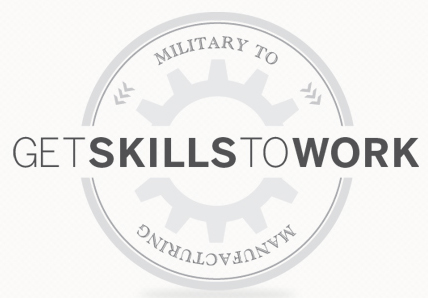Shortage Of Skilled Workers Puts Manufacturing On Hold
Post Views 2
XPAK USA, located in North Brunswick, has developed machinery that can, mechanically, bundle together different flavours of Gatorade into one package. The sales for the company are on the rise and they have registered 10 times more sale, in this first quarter, than there was in all of 2007.
The management is convinced that the growth would be much more, if only they could find skilled workers, to match their expansion.
The XPAK owner Tami Minond said, “It seems like we are growing, it seems like the economy is coming along, which makes us very happy. But it seems like a machinist is a rare bird in New Jersey.”
Meredith Aronson, director of the New Jersey Advanced Manufacturing Talent Network said that the Manufacturers “are coming back. The companies I talk to are scared. Their orders are increasing, but they simply can’t find the workers.”
The worker-shortage scenario calls for educators and employers to become more resourceful. Aronson suggests that they should create workers with modern skills, by training them and sharing the costs. He also referred to veterans, returning from war zones, as potential workers, saying that their team building and discipline attributes can be attuned to working in manufacturing units.
The Manufacturing sector has stood at as the one hopeful spot that is aiding the economic recovery, by adding jobs. The Labor Department reported that the Manufacturers added jobs at a faster pace than the others.
The growth of the industry has seen the lawmakers and others rushing to train workers, to fill the growing number of vacancies in the manufacturing sector. However, they are facing financial obstacles, as the cost of setting up a training program is high. Moreover, a generation of students have been advised against pursuing this field and it is hard to get them to change their deeply ingrained mindset.
Many companies, among them, Pretoria’s Advanced Technology Services, has benefited from this surge. Last year, the company hired more than a 1000 workers, many of them military veterans.
Jim Hefti, vice president of human resources said that the workers are given training between 12 and 44 weeks, which prepares them for their respective jobs. They are then sent to maintain other companies’ plants and their computer-controlled equipment all over the US. Clients of the company include Honeywell, Caterpillar and Eaton.
“I think that what has happened over the course of the last 10, 20 years is that manufacturing has been an industry outsourced overseas, and so a lot of families and parents aren’t encouraging their kids to get into manufacturing,” Hefti said. “Now you’re seeing a resurgence, but you don’t necessarily have the skill sets to fill the need,” he added.
Chris Cummiskey, Georgia Department of Economic Development commissioner said, “There’s this stigma … that if you go to technical college, it’s not as lucrative, but kids can come out of technical college in two years and have a job that pays more than their parents.
It is estimated that fresh students, right out of technical colleges are making nearly $55,000 a year, sometimes more, in his state.
“It used to be offshoring, sending work out of the country, but (manufacturing)’s starting to come back,” said Lewis Gossett, president and CEO of the South Carolina Manufacturers Alliance. “Let’s make sure our kids can do the work when it gets here. It’s as big a challenge as you can imagine, one of the biggest challenges manufacturing and this country will face over the next 20 years. We can meet it.”
Shortage Of Skilled Workers Puts Manufacturing On Hold by Harrison Barnes


 Web Page Design is a Reflection of Your Business
Web Page Design is a Reflection of Your Business  Is There An Online Business Right For You
Is There An Online Business Right For You